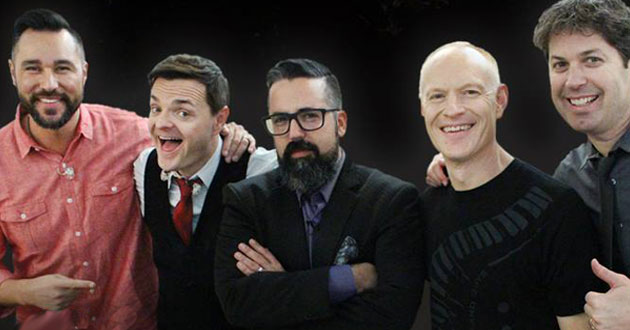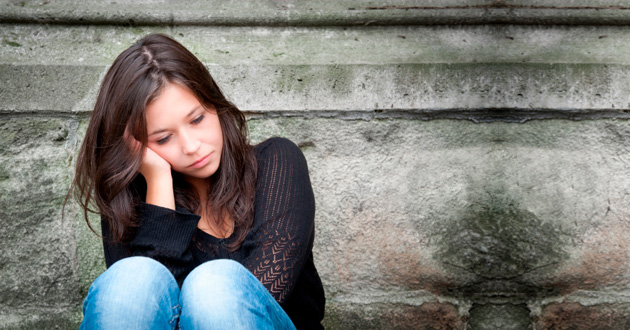Freedom from same-sex attraction

Two men share the different ways Jesus made them whole
Becket Cook was sipping champagne at a Fashion Week after-party in Paris when the thought hit him: “Is this what I’m going to do for the rest of my life?” He looked around at the sea of beautiful, accomplished, air-kissing people surrounding him and suddenly felt so alone, terrified, and empty that he left the party early.
As a Hollywood production designer, Cook was living a lifestyle most people only read about in gossip tabloids. He received invites to movie premieres and fancy ceremonies such as the Oscars and the Golden Globes. He schmoozed at elite parties and luncheons at A-list celebrities’ homes. And yet, all the noise and glamour were losing their luster. As a gay atheist, Cook had enough of a Catholic upbringing in Texas to know homosexuality and God were incompatible, and giving up his gay identity felt impossible and unnatural.
Cook had felt attracted to other males since he was 10 years old. But it wasn’t until high school, when he befriended another gay student, that Cook actively explored the world of homosexuality. The two teenagers toured the Dallas gay scene with heart-pumping exhilaration, visiting every gay bar and drag queen show they could find, dancing until sunrise, mingling with subculture crowds, and absorbing their lingo on sexuality and liberation.
“It was a whole new, interesting world,” Cook said. “I felt like I was finally with people who understood me. It was amazing. We were all misfits in society, so I identified with them. I felt free! Anywhere else, I felt like I couldn’t express this deep, dark secret.” At school and at home, he continued pretending to be a “nice, sweet straight guy,” and the double life weighed on him mentally and emotionally. But the day he fell in love with his first boyfriend as an adult, Cook felt so empowered and gratified that he “came out” to everyone. For a season, life as a gay man was fun and fabulous.
Next to fame and fortune, falling in love was the ultimate goal within his circle. Cook went through a series of relationships, each lasting about two years until one partner cheated, got bored, or spied another handsome specimen—easy breakups that Cook says are common among gay relationships: “It was all unhealthy, romance-driven relationships, with no real commitment. It’s like, as long as I’m attracted to you, and you give me what I want, we’ll stay together.” A lot of his married gay friends had open relationships. Even in serious relationships, Cook always lived in fear of abandonment.
Soon after the Great Paris Freakout, Cook was at a trendy coffee shop in Los Angeles when a group behind him laid out open Bibles. That surprised him because he had never before seen anyone publicly display a Bible in Los Angeles, let alone in the hippest part of town.
He turned around and asked the guy nearest to him, “So, are you a Christian?” The young man said yes. Cook surprised himself by asking, “Well, what is a Christian? I don’t even know what that is anymore.” The stranger shared the gospel with him. Then Cook asked the thorny question: “What does your church think about homosexuality?” When the guy responded that homosexuality is a sin, Cook shocked himself further by not dumping his beverage on him or mocking him, something he might have done just a year ago. Instead, he exchanged phone numbers and agreed to visit his church in Hollywood.
That following Sunday, Cook temporarily shelved his beliefs as he walked into the church auditorium. When the band started playing worship music, he cringed—a snap reflex. But once the pastor began preaching from Romans 7, Cook started edging forward on his seat, “absolutely blown away” by the truth of the gospel: “I knew then that, oh my gosh, this is true, true, true! It was freaking me out. It turned everything I thought about religion on its head.”
That was September 20, 2009, which Cook marks as “the day when everything completely changed.” That was the day when he came “undone.” All of a sudden, he became so overwhelmed by the revelation of God’s absolute holiness and his total sinfulness that he bawled uncontrollably for the rest of the service. He knew right then that if God is real, and if His Word is true, then “homosexuality is not glorifying to God, and I can never date men again.”
Though the same-sex attraction hasn’t disappeared, Cook immediately embraced his new identity and lost the desire to pursue a sexual relationship with another man. His mannerisms and interests changed. Instead of partying on Friday nights, he now cherishes intimate “date nights” with Jesus. Today he leads a prayer ministry team and community group at that same church and openly testifies of how God made his hostile, broken heart whole and fertile.
If Cook’s story is one of radical, immediate deliverance into the church, Brian Buxton’s is one of gradual “coming out” within the church, a story that’s more familiar to many.
Ever since first grade, Brian Buxton tapped into his artsy side: theater, dance, music. That didn’t win him popularity with the other boys, who bullied him and called him “fag” and “queer.” Even his own brothers shunned him. For years, Buxton didn’t understand why he felt different. Growing up in a conservative Christian family in San Diego, he didn’t know how to define the feelings he had for other men. It wasn’t until he watched the Broadway rock musical Rent, a show about New York City’s starving artists during the early HIV/AIDS epidemic, that he understood. And that brought him no relief.
After all, Buxton knew what the Bible said about homosexuality in verses that many gays dub as “clobber passages.” He also heard the disgust and condemnation towards homosexuality among fellow Christians. For a long time he battled against the conviction that homosexuality is a sin, so great was his desire for love and intimacy with someone. He felt agony and jealousy as he watched couples around him celebrate engagements and weddings.
Even the testimonies of ex-gay Christians who now live heterosexual lives brought little personal comfort because he knew he still struggled with same-sex attraction. The few times he confessed his burden to other Christians, they responded with awkward discomfort, lost on how to help or respond. So Buxton learned to bury his feelings, even as the guilt and shame putrefied to the point where he was stumbling and cowering with self-condemnation before God.
Then one Sunday, his church pastor preached on 1 Corinthians 6:9-11. Buxton knew verses 9 and 10 well—he’d often used it to “clobber” himself—but he had somehow ignored the following verse 11: “And such were some of you. But you were washed, you were sanctified, you were justified in the name of the Lord Jesus Christ and by the Spirit of our God.”
That verse radically shifted Buxton’s perspective. He felt like God was tenderly telling him, “Don’t you see? You’re washed of your sins in Christ. You are already justified, sanctified. You are those things. So rejoice, celebrate!”
Buxton still struggles occasionally with accusations and doubts that pinch and whisper, “Oh, the gospel is too good to be true.” But instead of struggling alone, he’s learned to open up to his church community for support and encouragement. Even when some people didn’t know how to respond to the issue of homosexuality, Buxton decided to keep pressing in, asking questions and stirring discussions to open awareness between his church friends and also keep himself accountable.
“The church as a whole, platforming specific sins, showing disgust towards people does not help. But welcoming people and providing a safe, open place that says, ‘If you’re dealing with these sins, this is the place for you’—that helps. I want to be surrounded by a community that supports me with the hope and truth of the gospel.” That’s why Buxton gets frustrated when he sees many churches today go the other way by embracing homosexuality. “To me that’s saying, no, I won’t walk with you in redemption, I’ll just ‘love’ you,” he said.
His prayer has also changed. Instead of simply longing for heterosexuality, Buxton now asks for daily victory: “Christians talk about victory in a way that’s final, like, ‘I don’t get tempted with that anymore.’ But no, victory is a path to walk on, to continue pressing on in believing the truth of the gospel. … I’m learning more and more that the opposite of homosexuality is intimacy with God, to be in a living relationship with him that is life-changing.”
— by Sophia Lee | WNS




